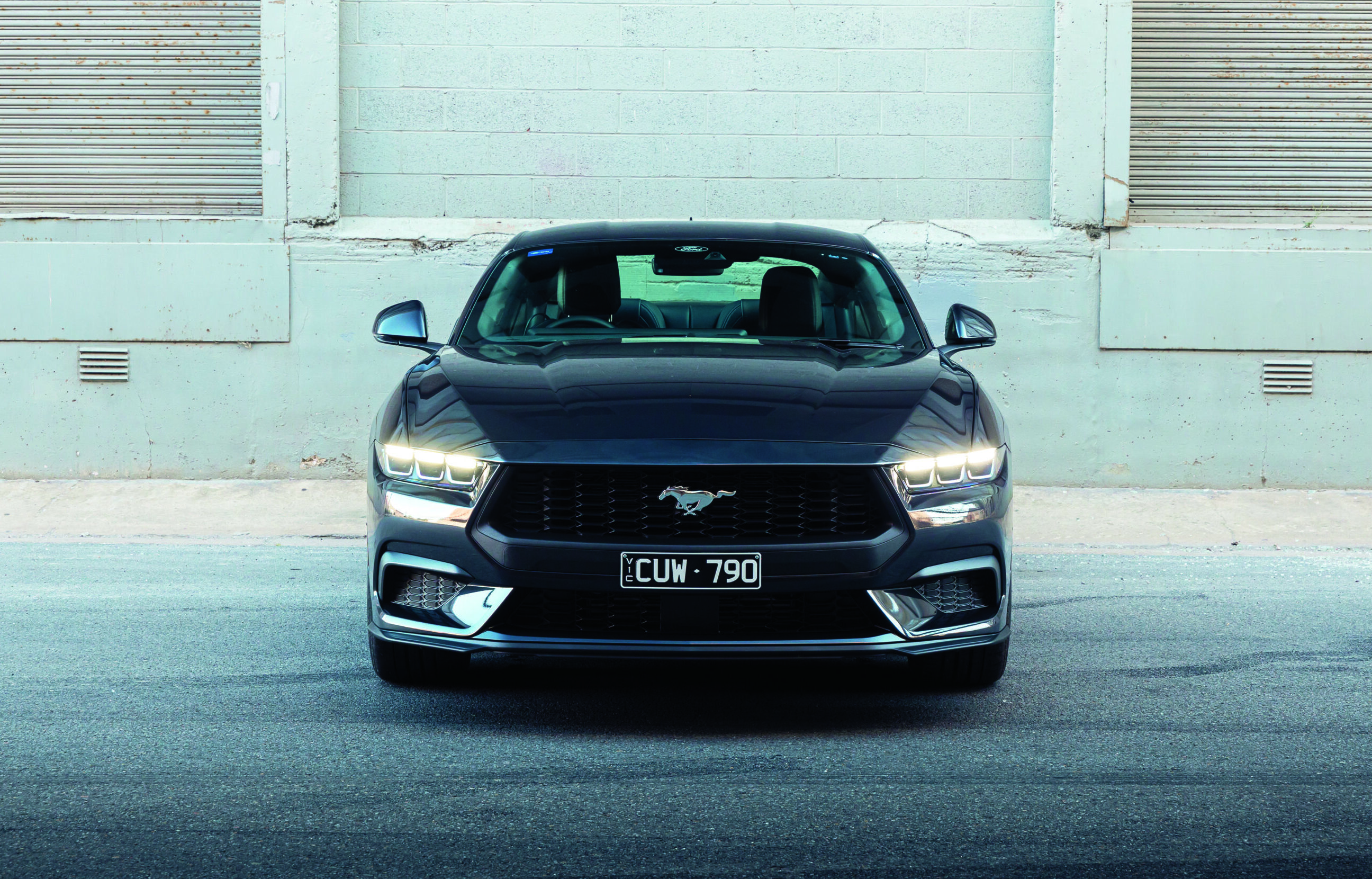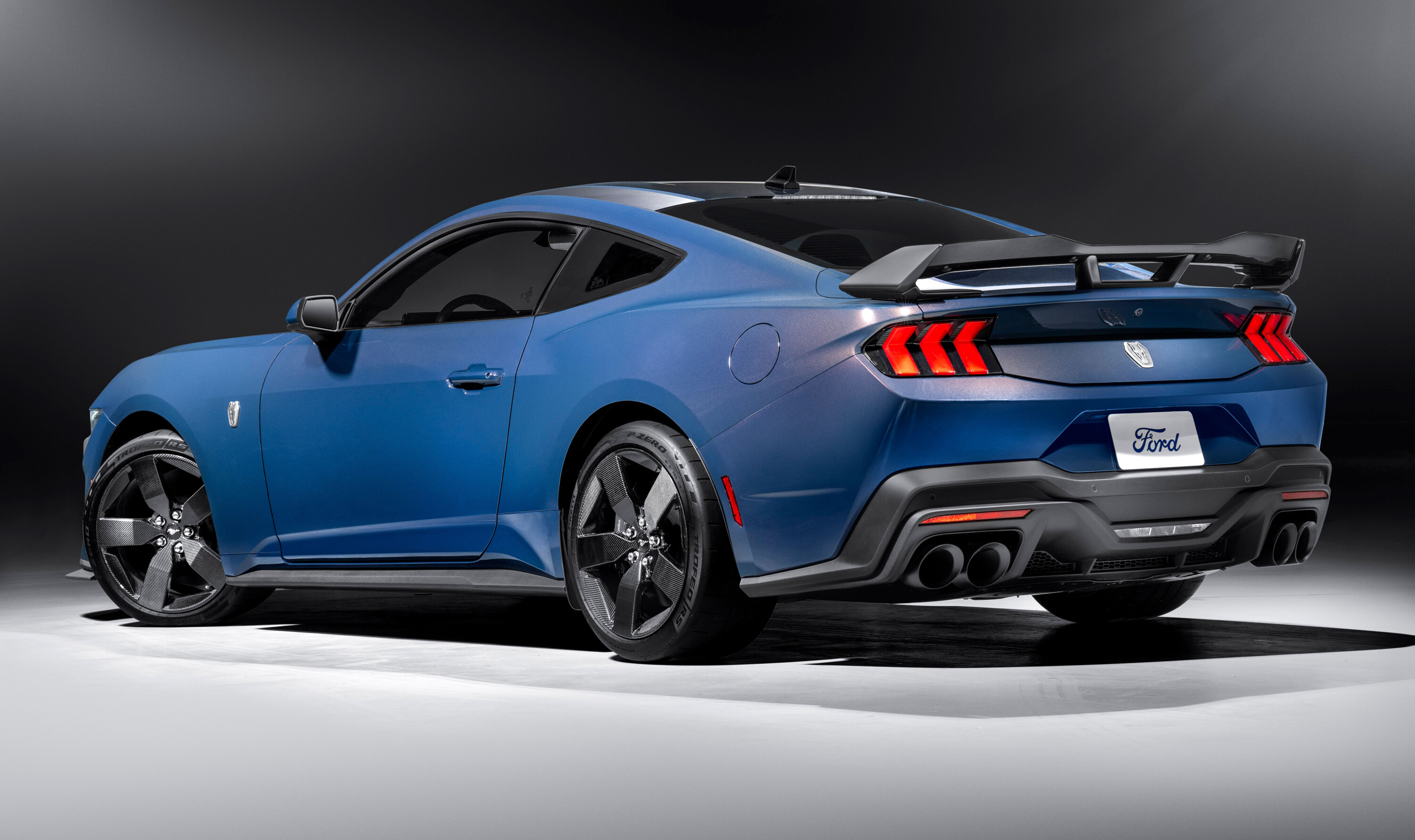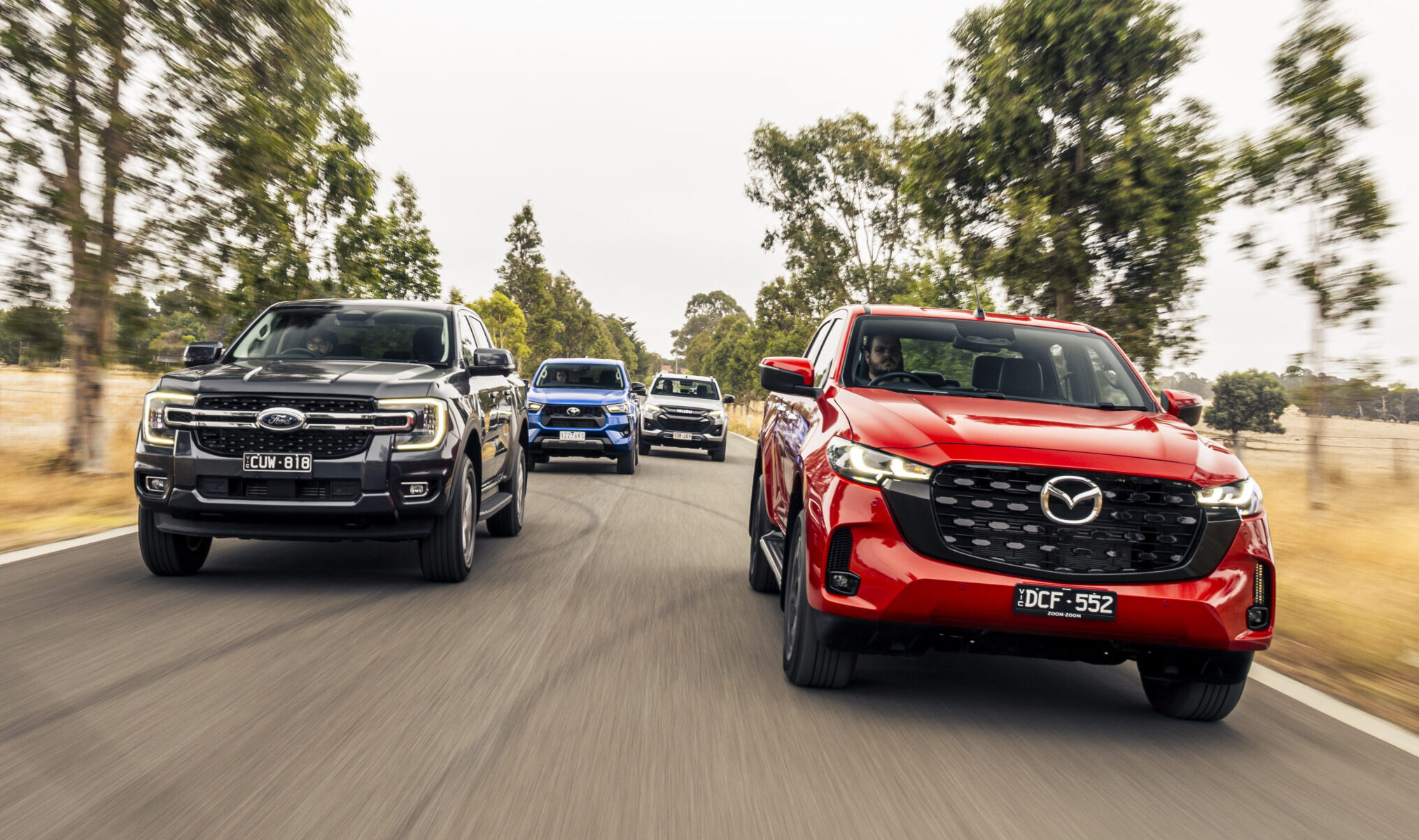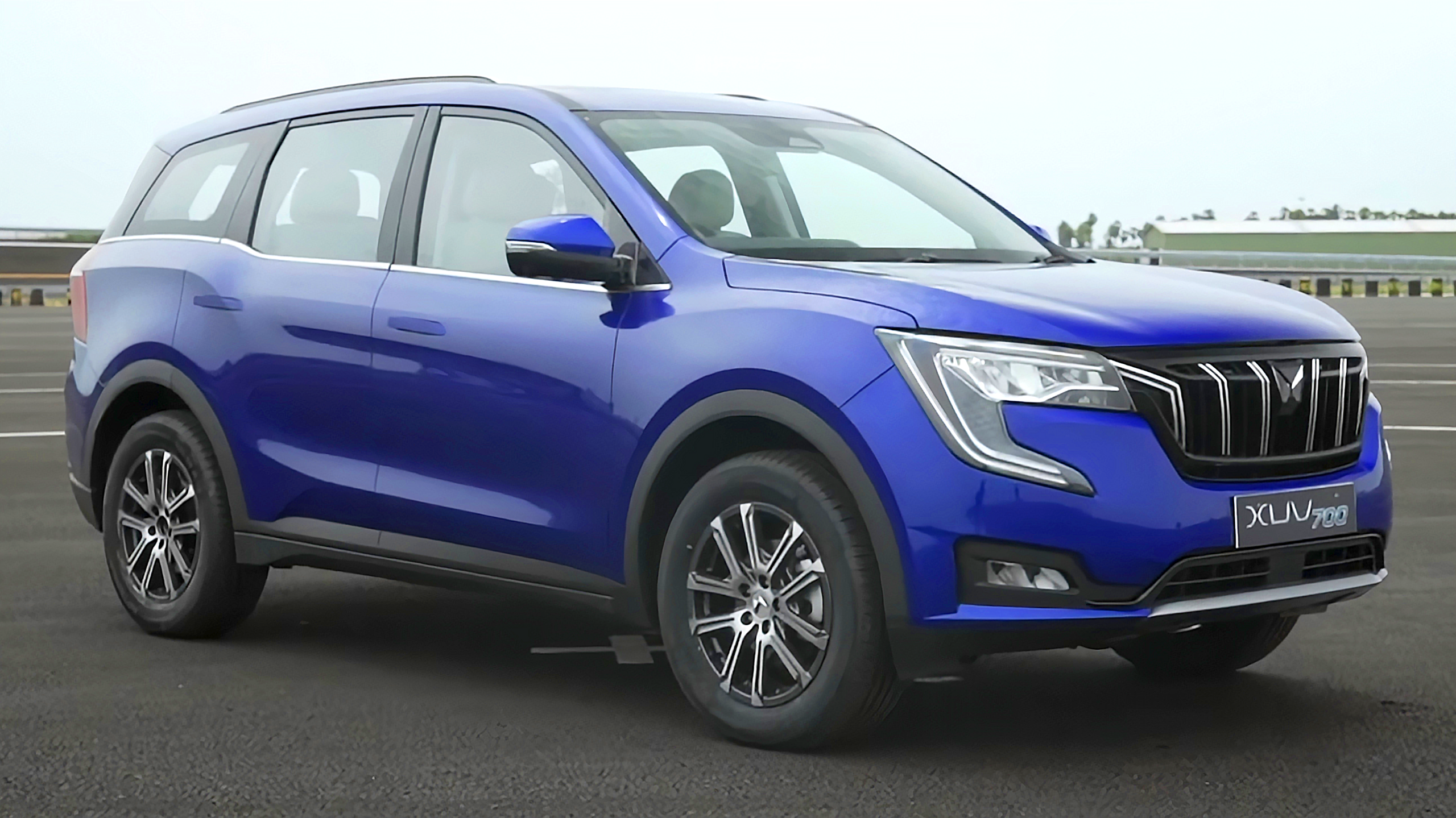Things we like
- More nimble steering than its predecessor
Not so much
- Kerb weight works against its performance versus rivals
‘Doing more with less’ has a lot to be said for it.
We’re forever being exhorted to reject excess and to live a right-sized life. That original phrase was credited to American futurist Richard Buckminster Fuller and it’s something that’s front of mind when driving the latest Ford Mustang EcoBoost.
Mull over the spec sheet and this is an incredibly appealing proposition. For $66,990 you get a well equipped rear-drive coupe that generates more power and torque than Porsche’s four-cylinder coupe, the $133,365 718 Cayman. Almost immediately the spectre of the eight-cylinder Mustang GT materialises.
Wasn’t 60-odd grand the price we were paying for a V8 Mustang not so many years ago? Yes, it was. But now you’ll need to spend $78,990 for a manual GT coupe and $81,990 if you want one that, like the EcoBoost, comes with a 10-speed automatic.
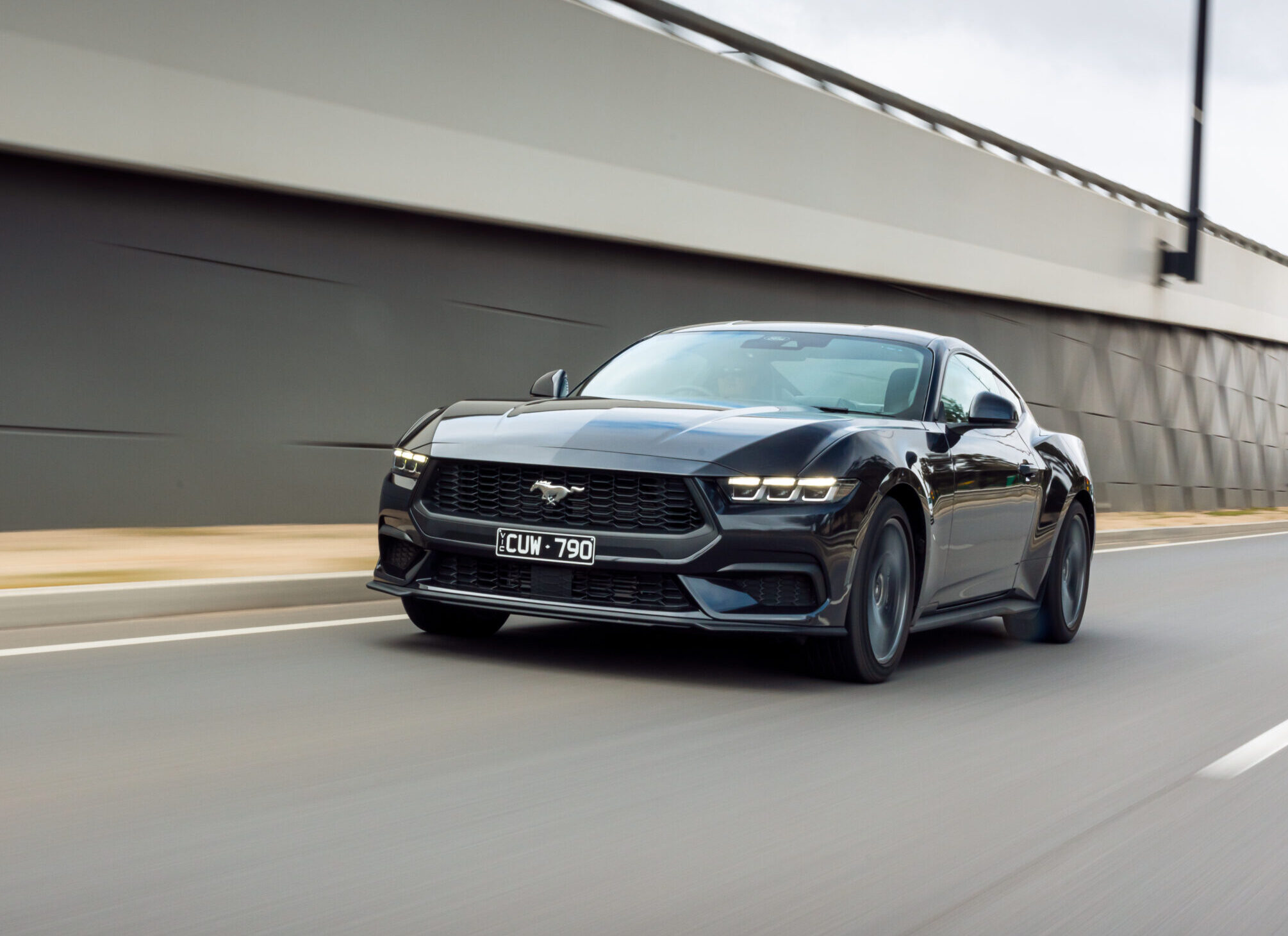
While the GT compares fairly closely on price to the likes of the Nissan Z and the Toyota Supra, it’s hard to know what to compare the EcoBoost with. It’s likely going to be a choice if you feel that you’re bored with hot hatches like the Golf R or the GR Corolla, two cars which it matches fairly closely on price.
It doesn’t take long behind the wheel of the Mustang EcoBoost to realise that it’d struggle to tag onto the back of either of those two all-wheel drive pocket rockets on any halfway challenging road. The 2.3-litre four is willing and, with 475Nm at its elbow, hardly shy of torque but the kerb weight of 1746kg contrives to take an edge off the car’s performance. A 0-100 sprint of 5.6 seconds is respectable and it even sounds reasonably good, even if some of the aural theatrics are artificial.
The engine benefits from a new twin-scroll turbocharger and both direct and multi-point injection, boosting response. The transmission slurs through ratios unobtrusively, when you’re hustling, helping to keep the car in its relatively narrow peak torque window. The old car made less in the way of twist action, but seemed to prolong the meaningful torque plateau further than this latest model. Still, that car made do with a mere 224kW whereas the current S650 model steps that up to 232kW.
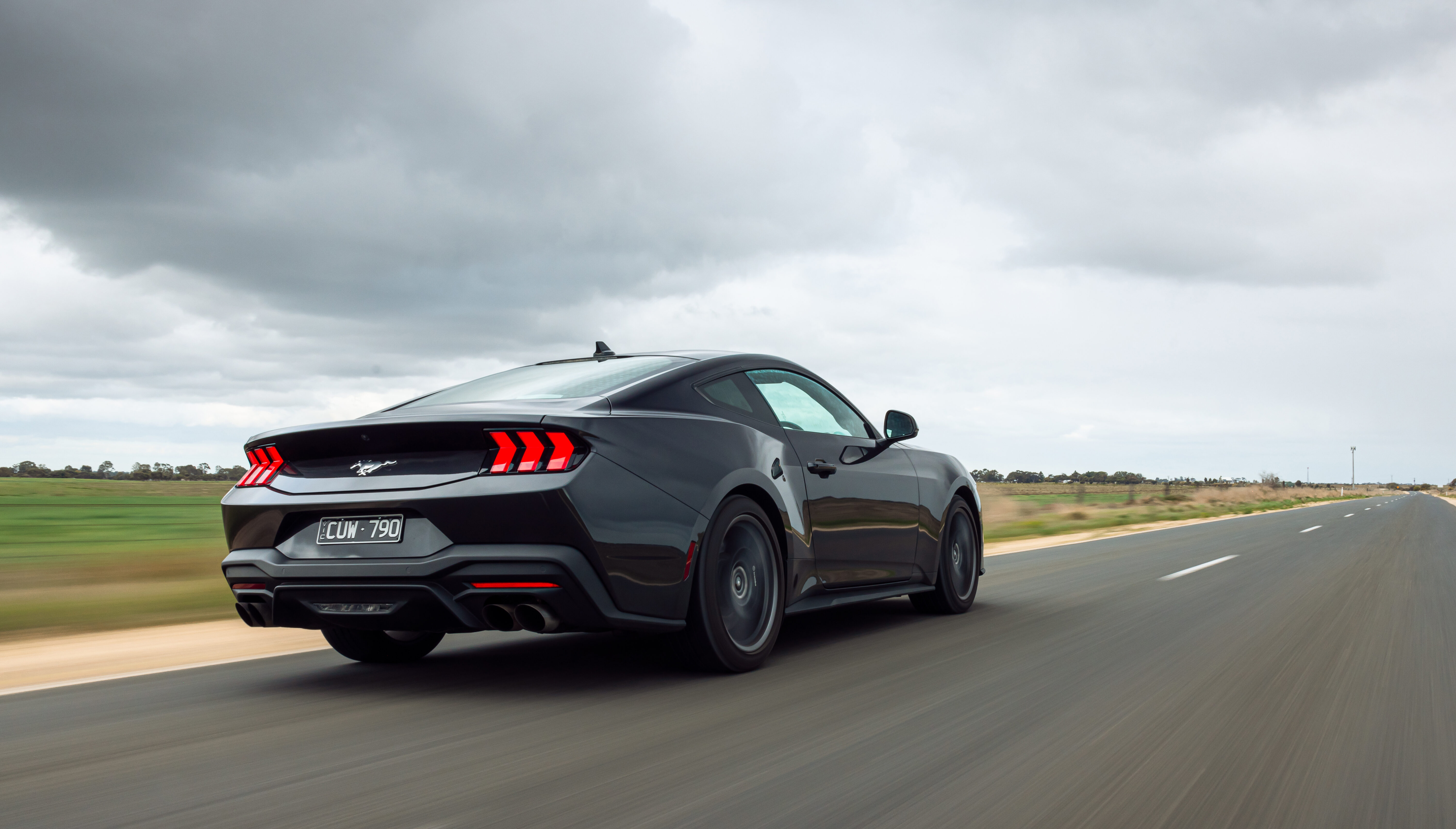
There’s a reasonable expectation that the front end would feel lighter and keener to turn in than the V8, and it does, but the difference is marginal. A fully-dressed turbo four can weigh close to a compact V8. Indeed were you to buy these powerplants as crate engines, Ford quotes 247.2kg for the EcoBoost without a flywheel and 268.5kg for the V8 with one. The standard Ecoboost flywheel assembly is 30kg. Make of that what you will.
The feeling of agility is likely down to the steering, which is night and day improved compared to the S550 predecessor, Ford having removed an anti-vibration joint from the steering column and increased the steering gearing and upgraded the rack capacity, resulting in a much nimbler feel. Damper tuning feels slicker, although the Pirelli P Zero tyre on this car (255/40 R19 all round) feels a step back from the Michelin Pilot Sport option.
Aussie cars also get the majority of the Performance Pack as standard including the brake package which comprises 390mm discs and six-piston Brembo front calipers with 355mm discs and four-pots aft. It also receives the 3.55:1 final drive, four-mode active exhaust, along with all the track apps: acceleration, brake and lap timer, line lock and the new drift brake. It’s a comprehensive package and in terms of standard gear, the V8 doesn’t get a whole lot extra.
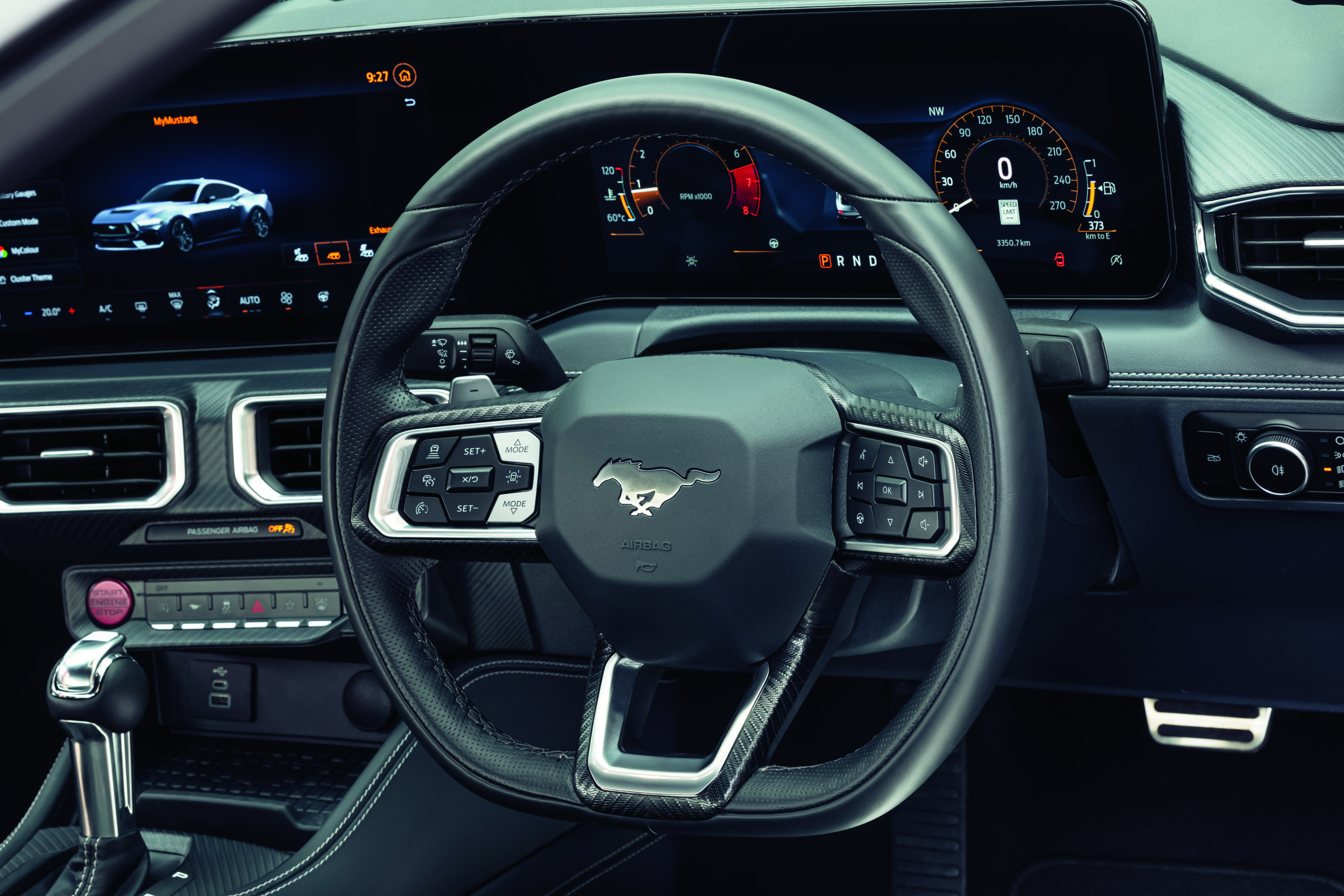
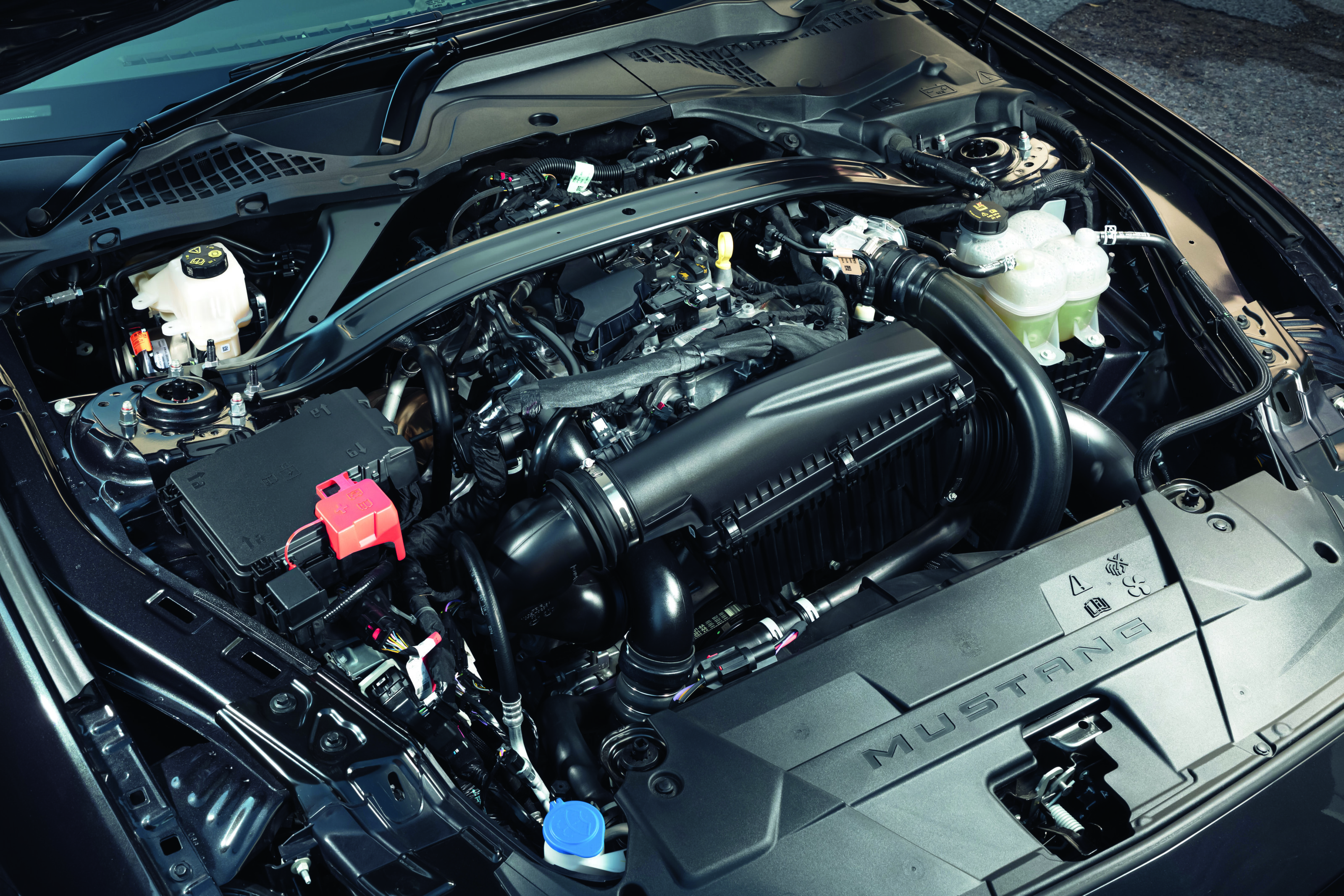
Should you buy one? Only if you’re not sold on the V8, a better car in most regards. You can do more with less, but when it comes to Mustangs, that really only applies to fuel economy. The S650 updates usefully improve the Mustang, but we can’t really make a coherent case for the EcoBoost as the thinking person’s option. It’s a good sports coupe, but it lacks the soul of the V8 and, among car enthusiasts at least, that counts.
Specifications
| Model | Ford Mustang EcoBoost coupe |
|---|---|
| Engine | 2261cc 4cyl, dohc, 16v, turbo |
| Max power | 232kW @ 5500rpm |
| Max torque | 475Nm @ 3000rpm |
| Transmission | 10-speed auto |
| Economy | 9.4L/100km |
| 0-100km/h | 5.6sec |
| Price | $66,990 |
| On sale | Now |
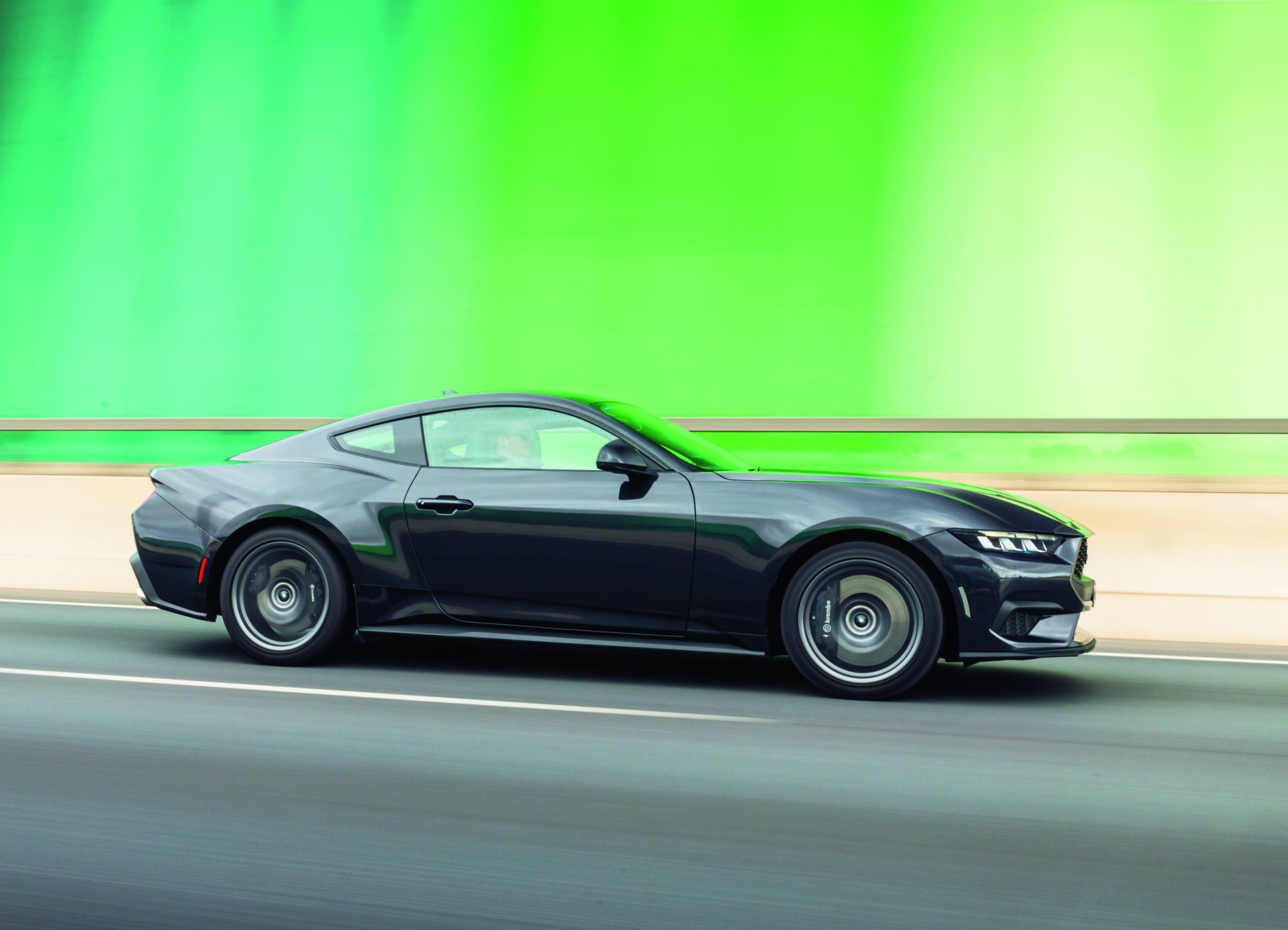
This article first appeared in the April 2025 issue of Wheels magazine.


